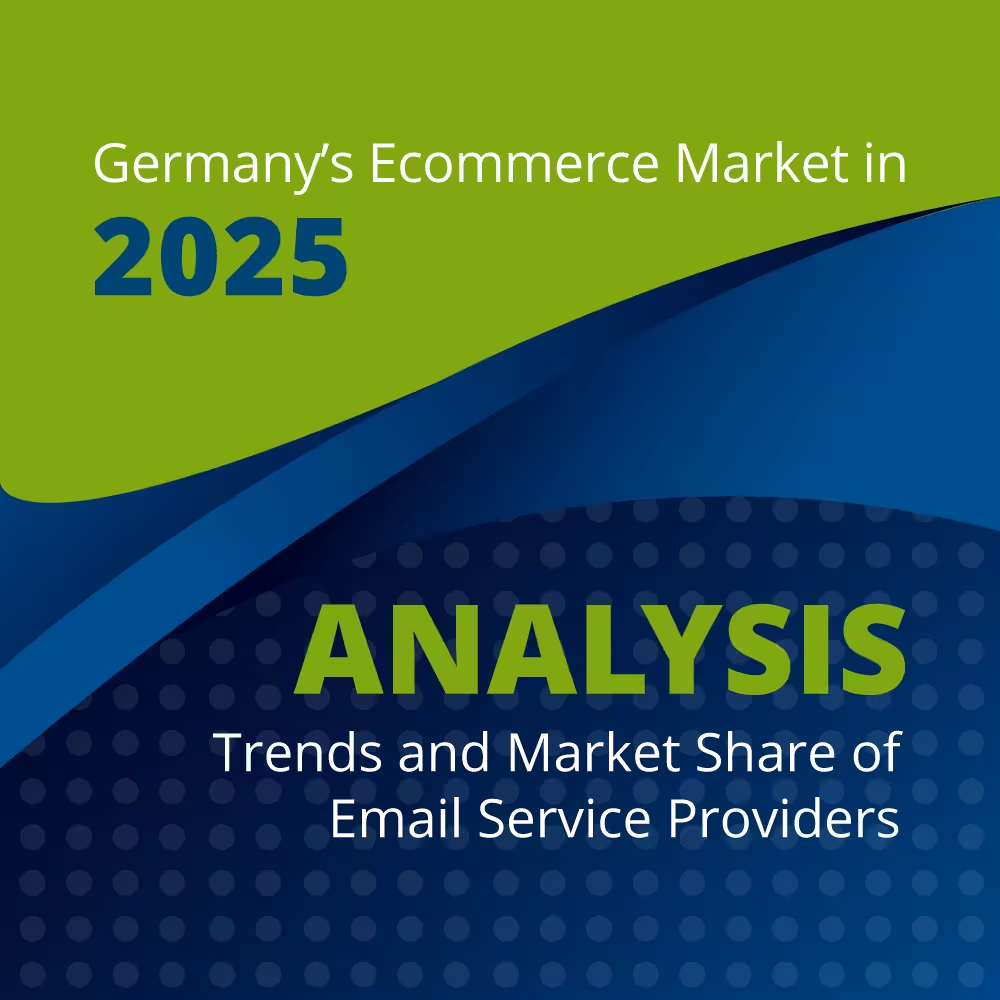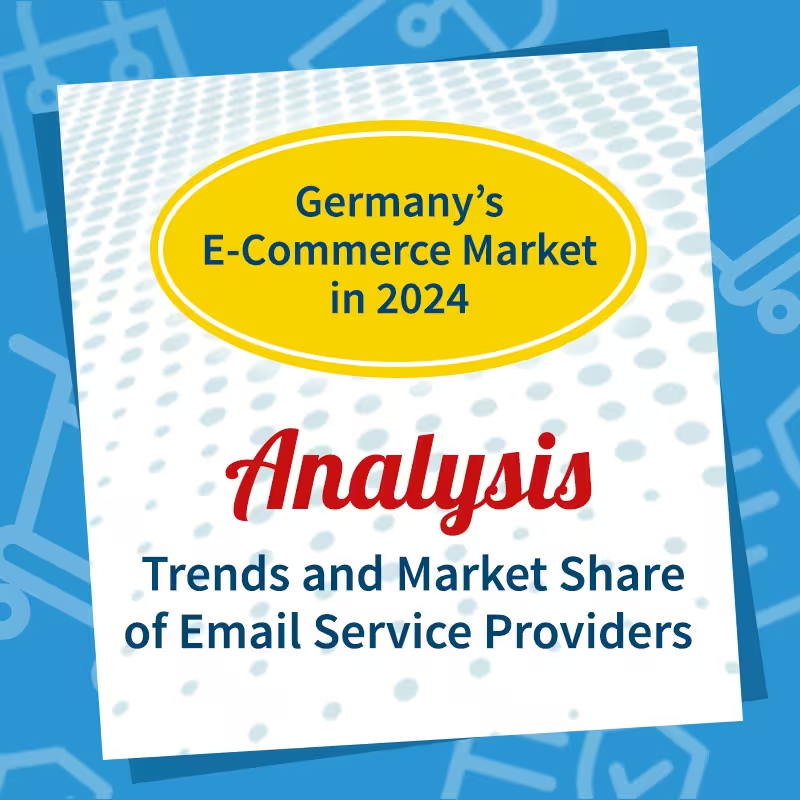Germany's favorite mail service
The relationship with the email provider is like a marriage. Unwavering loyalty is often pure convenience. The third email provider study by Publicare shows that the majority of Germans are firmly committed to their email provider — until the new smartphone makes switching easy and convenient. A trend that poses challenges not only for digital marketers.
For the third time, Publicare has evaluated several million anonymized email addresses in the major email provider study. On the surface, Germans remain largely loyal to their email accounts with major providers. However, some changes in the ranking allow security-oriented and email marketing experts to notice, as it were. Are convenience and irrational overreaction driving Germans equally into the arms of foreign email services? And does this have an impact on the design of marketing emails? Here you can find out the most important results of the Publicare study (more about the methodology).

Please also read the latest analysis results: Germany's favorite email service 2024
The top 10 at a glance
The top 10 service providers provide private email accounts for 89.8% of consumers (90.5% in 2014). However, the noticeable departure from German mail providers is interesting. Compared with figures from the Publicare email study of the year 2014 Their share of the top 10 has fallen — from 61 to 55.93%. Only 41.7% of Germans are still with United Internet with its freemail services web.de (19.1%) and gmx.de (21.1%). Google's market share is growing by 53% (from 7.9 to 12.1 percentage points). Deutsche Telekom is in third place with 10.2%, followed by Microsoft in 4th place. There are few partner changes in the midfield, occupied by Yahoo and Freenet. Vodafone is moving ahead of email veteran AOL. Apple addresses appear in ninth place (0.6%) in the hit list for the first time, which was occupied by EWE-Tel in 2014. The Russian provider Mail.ru Group has just been added in 10th place.
Email provider trend: Seduction through convenience!
Even those who rely too much on their partner to stay out of convenience can be disappointed. For example, when competition makes things even easier for the partner. In the area of freemail providers, Google's Gmail service plays the role of a convenience seducer. The increasing number of Gmail addresses in the mailing lists of German email marketers parallels the increased market shares of Android devices in Germany since 2014 (from 49% to 63% of all mobile phones, PCs, tablets and Ultrabooks sold). Google combines the use of Android mobile devices with pre-installed Google apps and the Play Store to the creation of Google accounts. Using the associated Gmail address is easier for many users than using their existing email address. Since the removal of the Android Mail app in favor of the Gmail app at the latest, the freshly created Gmail addresses — despite the NSA scandal — have been increasingly used by Germans. In our analysis of 12.1% of email recipients.
Data protection: Interception-proof emails
When it comes to listeners during discussions or caresses, Germans are divided into two. The NSA scandal did not hurt Google's popularity, but since 2014 it has given rise to several small providers that promise to send secure emails: De-Mail, mailbox.org and Posteo. Posteo, for example, impresses with transparency and excellent encryption using the DANE standard for one euro a month. We found almost 48,000 POSTEO email addresses in the volume of data examined. However, you have to assume that not every user of a secure email address also uses it to subscribe to promotional emails. The major German providers, on the other hand, cannot benefit from Edward Snowden's findings and the NSA affair. Your security initiative remains pure marketing fireworks.
Anonymity without obligations
What's more convenient than a comfortable relationship? An affair without obligations — preferably anonymously. The increase in email addresses on mail.ru may be due to the need to be “anonymous” or at least not to support large American corporations. An irrational thought process: the promise of anonymity is rated higher than data protection.
Around one percent of consumers can only appear to be reached via email. They receive promotional emails via so-called disposable email addresses, also known as trash emails. The actual communication of these consumers presumably takes place via other channels, such as messenger services or well-kept private email addresses. Read more about the effects of trash mail on deliverability and response rates here.
The bottom line for email marketers
While the problem of trash mail addresses can still be neglected in view of the low number of cases, the “convenient” ones represent an increasing challenge for all email marketers. With a market share of 12.1%, the problems faced by the Gmail app when interpreting CSS3 media queries are becoming increasingly significant. And even those who have had an email account with United Internet or T-Online for years no longer only access their emails via the desktop. With the variety of devices used in parallel — tablet, smartphone, smartwatches — and new email apps, the requirements for display optimization for digital marketers are rather increasing.
methodology
For this analysis, Publicare evaluated 14.7 million anonymized e-mail addresses from the e-commerce sector. All email addresses come from contact lists for German B2C campaigns from 2016, which were made available to us anonymously for evaluation purposes. When selecting email addresses, we made sure that they represent as representative a cross-section of various B2C product offerings and target groups as possible. The figures were analysed using the same method as in 2014. Comparative figures for trend analyses come from the Publicare email study 2014.














